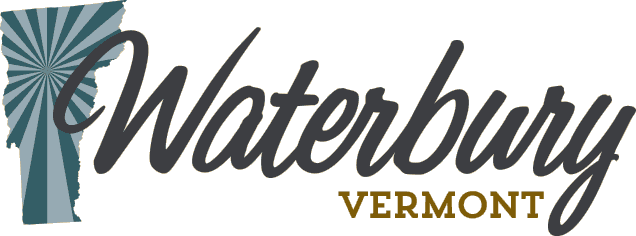Waterbury VT250 Planning Committee
Supporting and coordinating activities that honor, elevate, and celebrate the complex history
of 250 years in the United States and the Republic of Vermont.
About
The years 2026 and 2027 mark extraordinary 250 years in the histories of the United States and Vermont. In 2026, we will celebrate the formation of the United States of America with the anniversary of the signing of the Declaration of Independence. Vermonters were at the forefront of colonists’ efforts to free themselves from British rule, and in 2027, we will mark the 250th anniversary of the founding of the Republic of Vermont.
In August 2025, the Waterbury Selectboard signed a resolution to form a local committee to liaise with the State 250th Commission and serve as a central education, support, coordination, and communication hub for all 250th-related activities taking place in Waterbury.

Five Framing Themes
Developed by the American Association for State and Local History (AASLH)
The AASLH developed five themes to serve as a framework for 250th celebrations and commemorative activities and to encourage public discussion about how the roots of America’s founding—and by extension, the founding of the Republic of Vermont—continue to shape who we are today and what we envision for our future.
- How are our founding documents used to advocate for social, political, and economic change?
- Where are there other revolutionary moments in the history of our state and our community?
- When has there been progress and setbacks in the fight for rights, liberty, and justice?
- How do different perspectives approach the process of becoming “a more perfect union.”
The Vermont 250th Commission uses the theme, Legacies, to explore such questions, focusing on how the unfinished promises of the American Revolution defined the next 250 years and influence the social and political landscape of today.
- What was happening in our community during the Revolutionary Era and the founding of the Vermont Republic?
- How has our “place” changed over time, including who gets to call this place home?
- How has the natural environment shaped events?
- How does Indigenous peoples’ historic connection to places and environment inform our understanding of contemporary environmental challenges?
- What places are typically preserved for their historic value, and what kinds of stories can they tell?
The Vermont 250th Commission uses the theme, Conflict and Struggle, to explore such questions, especially around Vermonters’ struggle to carve out their own space between New York and New Hampshire.
- How have diverse people experienced and influenced the events of the American Revolution and the founding of Vermont in different ways?
- Who is an “American”—and a “Vermonter”—and who gets to decide?
- How have ideas about belonging changed, and why?
- When and how have different groups gained citizenship or other rights previously denied them?
- Who has been excluded from full participation and representation in our democracy, and who remains excluded?
The Vermont 250th Commission uses the theme, Forming Identities, to explore such questions, focusing on how the tumultious events of the revolutionary era shaped Americans’ and Vermonters’ sense of self and identity within the broader social and political context of the time.
- What was “revolutionary” about the American Revolution and the founding of the Republic of Vermont, and what kind of nation/state did it create?
- How is local and state government organized?
- Who serves in local and state government, who does it serve, and who is excluded?
- When and why have the U.S. Constitution and the State Constitution changed?
- How have different groups engaged in civic action in the past and present?
- How has understanding the origins of government inform civic engagement in the present?
- What is history, and how does history differ from “the past”?
- How do history professionals use different sources to make sense of the past?
- Whose stories are collected and preserved, and whose stories have been excluded?
- How do the available stories and perspectives of the past influence how we tell history?
- How can we use evidence from the Revolutionary era to learn about the lives of individuals traditionally silenced in the written record?
The Vermont 250th Commission uses the theme, Diversity of Experience, to explore these questions, focusing on how different people in the United States and Vermont experienced the revoluntionary era in different ways.
Upcoming Meetings
2nd Thursday of the month
March 12, 2026
Waterbury VT250 Planning Committee 03/12/26
6PM – 7:30 PM
April 9, 2026
Waterbury VT250 Planning Committee 04/09/26
6PM – 7:30 PM
May 14, 2026
Waterbury VT250 Planning Committee 05/14/26
6PM – 7:30 PM
February 12, 2026
Waterbury VT250 Planning Committee 02/12/26
6PM – 7:30 PM
January 8, 2026
VT250 Planning 01/08/2025
6PM – 7:30 PM
December 11, 2025
VT250 Planning 12/11/2025
6PM – 7:30 PM
November 13, 2025
VT250 Planning 11/13/2025
6PM – 7:30 PM
September 11, 2025
VT250th Info Session
6PM – 7 PM
Members
Michael Bard
Judi Byron
Joe Camaratta
Cheryl Casey, Chair
Roger Clapp
Bryan Farnsworth
Carolyn Fox
Ryan Geary
Evan Karl Hoffman
Ariel Mondlak
Laura Parette, Secretary
Contact Us
For questions or more information about how to volunteer with the committee, reach out to:
Cheryl Casey, Committee Chair
ccasey@waterburyvt.com
802-598-1553
